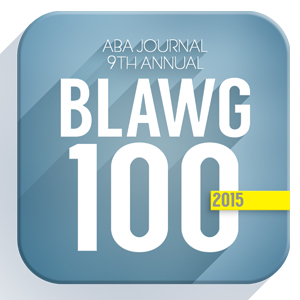Carr v. State Farm Mut. Auto. Ins. Co., No.3:15-cv-1026-M, 2015 WL 8010920 (N.D. Tex. Dec. 7, 2015)
In this case, the court addressed Defendant’s Motion to Compel discovery responses and undertook substantial analysis of the effects of newly amended Federal Rule of Civil Procedure 26 on the burdens of parties’ resisting discovery, concluding they had not fundamentally changed.
Defendant sought to compel Plaintiff’s production of additional discovery and moved accordingly. Taking up the motion, the court opined that the recent amendments to Rule 26 “raise the possibility that the burdens imposed on the party resisting discovery . . . must fundamentally change as well” but ultimately concluded that “it [was] not so.”
In so deciding, the court relied in part upon the Rule’s substantial Committee Note, including:
Restoring the proportionality calculation to Rule 26(b)(1) does not change the existing responsibilities of the court and the parties to consider proportionality, and the change does not place on the party seeking discovery the burden of addressing all proportionality considerations. Nor is the change intended to permit the opposing party to refuse discovery simply by making a boilerplate objection that it is not proportional. The parties and the court have a collective responsibility to consider the proportionality of all discovery and consider it in resolving discovery disputes.
Accordingly, the court explained:
To be sure, just as was the case before the December 1, 2015 amendments, under Rules 26(b)(1) and 26(b)(2)(C)(iii), a court can – and must – limit proposed discovery that it determines is not proportional to the needs of the case, considering the importance of the issues at stake in the action, the amount in controversy, the parties’ relative access to relevant information, the parties’ resources, the importance of the discovery in resolving the issues, and whether the burden or expense of the proposed discovery outweighs its likely benefit – and the court must do so even in the absence of a motion. See Crosby v. La. Health Serv. & Indem. Co., 647 F.3d 258, 264 (5th Cir. 2011) (“Accordingly, district courts must be mindful of the limitations placed on the frequency and extent of discovery under the federal rules, particularly Rule 26(b). For instance, a district court must limit otherwise permissible discovery if it determines that ‘the burden or expense of the proposed discovery outweighs its likely benefit, considering the needs of the case, the amount in controversy, the parties’ resources, the importance of the issues at stake in the action, and the importance of the discovery in resolving the issues.’ FED. R. CIV. P. 26(b)(2)(C)(iii); see Murphy, 619 F.3d at 1163 (holding that all discovery, including discovery in ERISA matters, ‘is limited by Rule 26(b)(2), which protects against, inter alia, overly burdensome discovery requests, discovery of cumulative materials, and overly costly discovery requests’). Rule 26(b) ‘has never been a license to engage in an unwieldy, burdensome, and speculative fishing expedition.’ Murphy, 619 F.3d at 1163. We trust that district courts will guard against abusive discovery.”).
But a party seeking to resist discovery on these grounds still bears the burden of making a specific objection and showing that the discovery fails the proportionality calculation mandated by Rule 26(b) by coming forward with specific information to address – insofar as that information is available to it – the importance of the issues at stake in the action, the amount in controversy, the parties’ relative access to relevant information, the parties’ resources, the importance of the discovery in resolving the issues, and whether the burden or expense of the proposed discovery outweighs its likely benefit.
The party seeking discovery, as the Committee Note recognizes, may well need to – in order to prevail on a motion to compel or resist a motion for protective order – make its own showing of many or all of the proportionality factors, including the importance of the issues at stake in the action, the amount in controversy, the parties’ relative access to relevant information, the parties’ resources, and the importance of the discovery in resolving the issues, in opposition to the resisting party’s showing.
And, as the Committee Note recognizes, the party seeking discovery is required to comply with Rule 26(b)(1)’s proportionality limits on discovery requests; is subject to Federal Rule of Civil Procedure 26(g)(1)’s requirement to certify “that to the best of the person’s knowledge, information, and belief formed after a reasonable inquiry:… (B) with respect to a discovery request…, [the request] is: (i) consistent with these rules and warranted by existing law or by a nonfrivolous argument for extending, modifying, or reversing existing law, or for establishing new law; (ii) not interposed for any improper purpose, such as to harass, cause unnecessary delay, or needlessly increase the cost of litigation; and (iii) neither unreasonable nor unduly burdensome or expensive, considering the needs of the case, prior discovery in the case, the amount in controversy, and the importance of the issues at stake in the action”; and faces Federal Rule of Civil Procedure 26(g)(3) sanctions “[i]f a certification violates this rule without substantial justification.” FED. R. CIV. P. 26(g)(1)(B), 26(g)(3); see generally Heller v. City of Dallas, 303 F.R.D. 466, 475-77, 493-95 (N.D. Tex. 2014).
*10 But the amendments to Rule 26(b) and Rule 26(c)(1) do not alter the basic allocation of the burden on the party resisting discovery to – in order to prevail on a motion for protective order or successfully resist a motion to compel – specifically object and show that the requested discovery does not fall within Rule 26(b)(1)’s scope of proper discovery (as now amended) or that a discovery request would impose an undue burden or expense or is otherwise objectionable. See McLeod, 894 F.2d at 1485; Heller, 303 F.R.D. at 483-93.
Defendant’s motion was granted. A full copy of the court’s opinion and order is available here.

